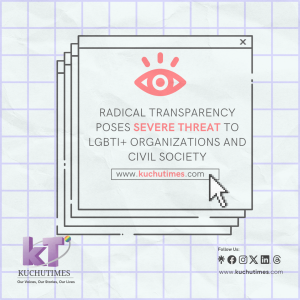Our Correspondent Aisha Spoke To Dr. Pius Wamala From Kaseese and he says, breast cancer is the most frequently diagnosed life-threatening cancer among Lesbian Bisuexal and Queer women in the area.
“Breast cancer has many signs and symptoms and these can be seen by change in breast size or shape, skin dimpling or skin changes appearing like skin of an orange, recent nipple inversion or nipple abnormalities, discharge from the nipples particularly blood-stains, armpit and or breast lump(mass),or wound on the breast.” Says Dr Pius
He adds that other signs that occur when cancer spreads to other body parts the like chest or lungs include, breathing difficulties. One can also experience bone pain, when cancer has spread to the bones.
The good doctor said, some of the risk predisposes to breast cancer are, age, genetics, environmental, and lifestyle factors. Some are modifiable and others are not.
Age.
The disease is rare in women younger than 25 years (but can occur), and the incidence increases with increasing age, reaching a plateau in women aged 50-69 years.
KGenetic.
There is an increased risk of developing breast cancer if any of your first degree relatives got breast cancer. Could be a male relative too.
Exogenous hormones.
The overall evidence suggests a modestly increased risk in current users of oral contraceptives (family planning pills). Risk is increased 1-2 four times for 10 years use. However, 10 years after discontinuation, this risk regresses to normal. The progestin (synthetic progesterone)-only pill (“mini pill”) does not seem to be associated with an increased breast cancer risk.
Menstrual history and related child birth.
Factors that increase the number of menstrual cycles also increase the risk of breast cancer, probably due to increased endogenous oestrogen exposure. Such factors include the following:
If you get your first periods when younger than 13 years. (2 times the risk)
Those who have never concieved children.
First full pregnancy when older than 30 years
Not breastfeeding
Menopause when older than 50 years.
Other risk factors Include tobacco exposure/smoking, shisha and alcohol consumption.
Radiation exposure.
Exposure to dichlorodiphenyldichloroethylene (DDE), a metabolite of the insecticide dichlorodiphenyltrichloroethane (DDT).
How to screen for breast cancer.
Self examination by pressing the sides of your breasts to check for lumps.
Clinical examination where a medical practitioner examines your breast.
Imaging (usually mammography, ultrasonography, or both).In Kasese we can only do scan.
Biopsy can be done in any of the hospitals in Kasese e.g Kilembe Mines Hospital, Kagando Hospital, Bwera Hospital.




